 Technology has changed the face of every industry, and the many different fields that make up modern agriculture are no exception. From safer, more advanced, and more productive farming processes to producing and packaging food products, technology and the concerns that surround it have been vital to the evolution of agriculture. As the field continues to face increasing pressure from all sides, the ability to streamline processes and make them more eco-friendly at the same time continues to be an essential benefit to the use of heat exchangers throughout agriculture. (more…)
Technology has changed the face of every industry, and the many different fields that make up modern agriculture are no exception. From safer, more advanced, and more productive farming processes to producing and packaging food products, technology and the concerns that surround it have been vital to the evolution of agriculture. As the field continues to face increasing pressure from all sides, the ability to streamline processes and make them more eco-friendly at the same time continues to be an essential benefit to the use of heat exchangers throughout agriculture. (more…)
How Cost-Effective Can Heat Exchangers Be?
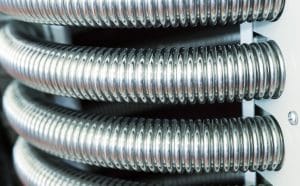 When companies seek to streamline their electrical thermal management processes, some of the most important considerations tend to focus on overall efficiency and productivity. Traditional cooling solutions can be a lot to keep up with, particularly due to a frequent need for maintenance and unscheduled repairs. However, after streamlining their electrical cooling systems with modern options, like heat exchangers, companies find that the advantages of doing so extend further than they may have realized at first. Thanks to their more innovative ways of transferring waste heat, they also make thermal management significantly more cost-effective in several areas. (more…)
When companies seek to streamline their electrical thermal management processes, some of the most important considerations tend to focus on overall efficiency and productivity. Traditional cooling solutions can be a lot to keep up with, particularly due to a frequent need for maintenance and unscheduled repairs. However, after streamlining their electrical cooling systems with modern options, like heat exchangers, companies find that the advantages of doing so extend further than they may have realized at first. Thanks to their more innovative ways of transferring waste heat, they also make thermal management significantly more cost-effective in several areas. (more…)
Custom Heat Exchangers For Below-Ambient Cooling
 It’s been many years since companies first began utilizing heat exchangers for their electrical cooling needs. Almost immediately, the companies that switched from more traditional solutions, like air conditioners, began to benefit from the reduced amount of energy they had to dedicate to thermal management. These and other advantages stem from the more streamlined ways in which heat exchangers keep electrical enclosures cooled. However, using natural methods of transferring heat hasn’t always been as effective at achieving the below-ambient cooling temperatures that some applications still require. Today, a variety of custom heat exchangers have changed that, bringing the same low-energy, high-performance electrical cooling methods to applications that require below-ambient cooling to operate. (more…)
It’s been many years since companies first began utilizing heat exchangers for their electrical cooling needs. Almost immediately, the companies that switched from more traditional solutions, like air conditioners, began to benefit from the reduced amount of energy they had to dedicate to thermal management. These and other advantages stem from the more streamlined ways in which heat exchangers keep electrical enclosures cooled. However, using natural methods of transferring heat hasn’t always been as effective at achieving the below-ambient cooling temperatures that some applications still require. Today, a variety of custom heat exchangers have changed that, bringing the same low-energy, high-performance electrical cooling methods to applications that require below-ambient cooling to operate. (more…)
Streamlined Cooling for Modern Electrical Panels
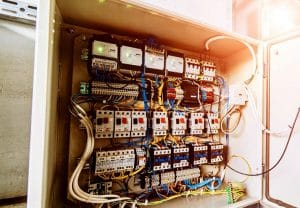 Thermal management these days means many different things, but in every industry, it’s a vital part of their overall efficiency and operations. That’s especially true for cooling electrical control panels – a process that’s essential for keeping most forms of industrial technology running smoothly. Cooling control panels and other electrical enclosures is one of the oldest forms of electrical thermal management, and today, it remains one of the most important areas for more streamlined cooling methods. With the help of modern heat exchangers, most companies have been able to significantly enhance their electrical panel cooling efficiencies, and as a result, their overall efficiency and productivity. (more…)
Thermal management these days means many different things, but in every industry, it’s a vital part of their overall efficiency and operations. That’s especially true for cooling electrical control panels – a process that’s essential for keeping most forms of industrial technology running smoothly. Cooling control panels and other electrical enclosures is one of the oldest forms of electrical thermal management, and today, it remains one of the most important areas for more streamlined cooling methods. With the help of modern heat exchangers, most companies have been able to significantly enhance their electrical panel cooling efficiencies, and as a result, their overall efficiency and productivity. (more…)
How Cold Plates Became High-Performance Cooling Solutions
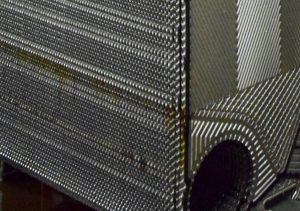 Some heat exchangers are designed to handle the common thermal management needs of companies in most modern industries. The streamlined way in which they prevent electrical overheating can be adapted to handle most electrical cooling needs with optimal efficiency and productivity. Some heat exchanger designs, however, are made specifically to handle some of the more unique and demanding needs of today’s more modern industrial applications. Modern cold plates are a type of heat exchanger that can provide the same highly efficient thermal management solutions that heat exchangers have always been known for. Yet, they can typically handle larger amounts of waste heat at a time, and over larger individual surface areas. (more…)
Some heat exchangers are designed to handle the common thermal management needs of companies in most modern industries. The streamlined way in which they prevent electrical overheating can be adapted to handle most electrical cooling needs with optimal efficiency and productivity. Some heat exchanger designs, however, are made specifically to handle some of the more unique and demanding needs of today’s more modern industrial applications. Modern cold plates are a type of heat exchanger that can provide the same highly efficient thermal management solutions that heat exchangers have always been known for. Yet, they can typically handle larger amounts of waste heat at a time, and over larger individual surface areas. (more…)
Better Thermal Management in Hazardous Locations
 For many years, heat exchangers have provided the kind of streamlined, efficient, and highly effective thermal management that some of the most advanced electrical applications require. For companies in most industries, this has proven a highly advantageous advancement; unlike traditional cooling solutions, the use of heat exchangers has helped them save significantly on expenditures such as energy usage and maintenance and repair requirements. However, in some industries, companies have not been able to benefit from heat exchangers in the same way, due largely to the conditions under which they operate. Fortunately, they, too, can enjoy better thermal management in hazardous locations thanks to specialized heat exchangers. (more…)
For many years, heat exchangers have provided the kind of streamlined, efficient, and highly effective thermal management that some of the most advanced electrical applications require. For companies in most industries, this has proven a highly advantageous advancement; unlike traditional cooling solutions, the use of heat exchangers has helped them save significantly on expenditures such as energy usage and maintenance and repair requirements. However, in some industries, companies have not been able to benefit from heat exchangers in the same way, due largely to the conditions under which they operate. Fortunately, they, too, can enjoy better thermal management in hazardous locations thanks to specialized heat exchangers. (more…)
Using Air-to-Air Cooling Methods for Advanced Applications
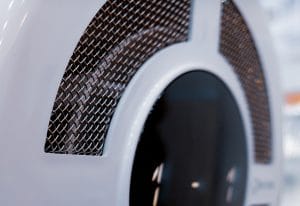 There is no way to get around the fact that electrical applications require adequate cooling solutions to prevent overheating. However, while the process of electrical cooling used to be a notoriously cumbersome one (especially when implemented at scale for industrial applications), there are several solutions today that make it much less so. For example, with modern heat exchangers, companies can utilize much more natural and efficient methods of cooling than traditional cooling solutions. For many applications, that includes simplified air-to-air heat transfer techniques that require significantly less energy, fewer repairs, and less hassle to maintain. (more…)
There is no way to get around the fact that electrical applications require adequate cooling solutions to prevent overheating. However, while the process of electrical cooling used to be a notoriously cumbersome one (especially when implemented at scale for industrial applications), there are several solutions today that make it much less so. For example, with modern heat exchangers, companies can utilize much more natural and efficient methods of cooling than traditional cooling solutions. For many applications, that includes simplified air-to-air heat transfer techniques that require significantly less energy, fewer repairs, and less hassle to maintain. (more…)
Eco-Friendly Ways to Cool Electrical Enclosures
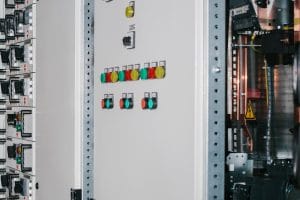 Of the many different thermal management challenges that companies face these days, the goal of keeping electrical enclosures cooled in an efficient manner remains one of the most prominent ones. In nearly every industry, the use of technology continues to grow more dominant, and the control panels and other electrical enclosures that technology relies on require optimal solutions to remain properly cooled. In addition to providing the efficiency that modern operations typically demand, heat exchangers have also become an often ideal solution for their ability to cool electrical enclosures in more eco-friendly ways than traditional solutions can. (more…)
Of the many different thermal management challenges that companies face these days, the goal of keeping electrical enclosures cooled in an efficient manner remains one of the most prominent ones. In nearly every industry, the use of technology continues to grow more dominant, and the control panels and other electrical enclosures that technology relies on require optimal solutions to remain properly cooled. In addition to providing the efficiency that modern operations typically demand, heat exchangers have also become an often ideal solution for their ability to cool electrical enclosures in more eco-friendly ways than traditional solutions can. (more…)
How to Make Heat Pipes a High-Performance Cooling System
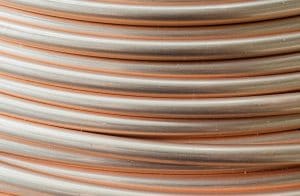 One of the first types of heat exchangers to first gain prominence in electrical thermal management were heat pipe-based heat exchangers. These are highly efficient heat exchangers that are designed to transfer electrical waste using an eco-friendly fluid that flows freely and rapidly through a series of heat pipes. Over the years, the process of transferring heat has been utilized in a wide range of heat exchanger designs, each providing unique benefits to the applications for which they’re designed. However, in many cases, heat pipes remain the most efficient and effective heat exchanger design for a wide range of modern applications. (more…)
One of the first types of heat exchangers to first gain prominence in electrical thermal management were heat pipe-based heat exchangers. These are highly efficient heat exchangers that are designed to transfer electrical waste using an eco-friendly fluid that flows freely and rapidly through a series of heat pipes. Over the years, the process of transferring heat has been utilized in a wide range of heat exchanger designs, each providing unique benefits to the applications for which they’re designed. However, in many cases, heat pipes remain the most efficient and effective heat exchanger design for a wide range of modern applications. (more…)
Heat Exchangers Designed for Below-Ambient Cooling
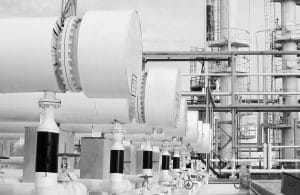 Since heat exchangers have become a popular electrical enclosure cooling system, the value of ambient cooling solutions has grown increasingly more prominent. However, there are still many applications in which ambient cooling doesn’t suffice, whether it’s because the environment outside of the electrical enclosures is too warm, or the application’s operating parameters specifically require below-ambient cooling. Fortunately, modern heat exchangers aren’t restricted to one form of cooling, and for many applications, they can be designed to achieve high-performance, below-ambient cooling with optimal efficiency. (more…)
Since heat exchangers have become a popular electrical enclosure cooling system, the value of ambient cooling solutions has grown increasingly more prominent. However, there are still many applications in which ambient cooling doesn’t suffice, whether it’s because the environment outside of the electrical enclosures is too warm, or the application’s operating parameters specifically require below-ambient cooling. Fortunately, modern heat exchangers aren’t restricted to one form of cooling, and for many applications, they can be designed to achieve high-performance, below-ambient cooling with optimal efficiency. (more…)







